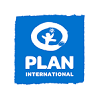DRC has worked in Nigeria since July 2015 and currently operates through a country office in Abuja, two field offices in Maiduguri (Borno) and Mubi (Adamawa), field sub-offices in Borno and Adamawa States, and is currently working across 13 local government areas (LGAs). DRC’s key areas of intervention include protection, food security and livelihoods, WASH, shelter/non-food items (NFI), and humanitarian disarmament. Its protection-centred programming aims to provide timely and effective delivery of humanitarian assistance while maintaining both DRC staff’s safety and integrity in conflict and fast-changing environments. In 2023, DRC expanded to NW Nigeria through localized response to conflict-induced displacement. DRC established successful strategic partnership for quick and flexible multi-sectoral response, particularly through the Grassroot Initiative for Strengthening Community Resilience (GISCOR) in Sokoto and the Center for Community Excellence (CENCEX) in Zamfara state (NW).
In 2024, Northeast Nigeria continued facing a multidimensional protracted crisis marked by conflict, insecurity, extreme weather patterns and recently camp closures brought upon by the Borno State exacerbating the multi-sectoral needs of the most vulnerable people. The protection analysis carried out by DRC in October 2023 highlighted that women and girls suffer the most from Gender-Based Violence (GBV) incidents (domestic violence, rape, physical assaults), they are further exposed to GBV risks, with survival sex as a negative coping strategy to meet their basic needs (i.e., sex for food). Based on DRC’s MSNA, HNO 2023 and rapid follow up assessments, all four LGAs Face one of the highest rates of protection risks, especially attacks by NSAGs. Protection risks related to farmer killings and social tensions have been especially on the rise in Konduga and Monguno LGAs where the JoT will be implemented leading to further IPV.
DRC Nigeria is uniquely positioned to leverage on complementarities to strengthen the impact of its programming on hard-to-reach communities and ensuring to use its expertise in GBV prevention to strengthen the link between key departments of DRC. The overall goal of DRC Nigeria’s integrated programming is to promote favourable conditions for shock and displacement-affected communities to seek safety, claim their basic rights but especially pursue self-reliance while IDPs camps are being closed by the Borno State government. DRC Nigeria is delivering GBV prevention programming focused on behavior change as part of its protection programming. The products of this consultancy are expected to compliment DRC Nigeria’s ongoing GBV prevention programming (IRC’s Engaging Men through Accountable Practice).
DRC will pilot an integrated approach between the economic recovery and protection departments using and contextualizing the ‘Journeys of Transformation’ manual to engage men as allies in Women Economic Empowerment’. The protection outcome of the JoT is to ensure that displacement and conflict affected individuals and communities can prevent and mitigate the specific threats and protection risks they are facing (including domestic violence) through economic empowerment and increased access to livelihoods.. The consultant will need to contextualize JoT and develop a comprehensive training to understand JoT implementation that will allow protection staff to promote a positive behavior change of both men and women regarding the economic empowerment of women, by including women participants of the Saving and Loans Groups (SLGs) constituted under the Economic Recovery and Market System (ERMS) sector of the proposed project.
Some of the key requirements are:
- An advanced University Degree in Gender Studies, Development Studies, Social Sciences, psychology or an equivalent will be an added advantage.
- Demonstrated at least 10 years of experience in facilitating trainings including conducting Training of Trainers (ToT) on GBV response and prevention especially on Women’s Empowerment
- Demonstrated experience on GBV programming in fragile/developing contexts. Knowledge of community-based interventions for GBV and showing experience on the engagement of men and boys on GBV prevention is essential.
- Demonstrable experience working on women’s rights and gender equality programmes, particularly relating to women’s economic empowerment ideally was already involved with Journeys of Transformation and EMAP
- Technical expertise in women’s rights, particularly related to women’s economic empowerment, unpaid care work and violence against women, ideally alongside knowledge of sustainable rural livelihoods especially in conflict areas
- Knowledge of MEAL tools for Women’s Economic Empowerments projects and GBV prevention.
- Geographic knowledge of Northern Nigeria is an advantage and the consultant will need to be willing /capable to come to Nigeria for this assignment from the first month of the consultancy onwards and can be hosted in DRC GH.
- Experience in development of ToT and other tools to readapt Protection curricula.
- Previous experience working with communities using participatory approaches ideally community based protection projects
- Demonstrated understanding of and commitment to ethical issues in humanitarian settings and upholding humanitarian principles
- Experience in technical advisory for humanitarian organisations/development actors including with or through country-based partners, delivering agreed outputs on time and on budget
- Ability to write high quality, clear, concise reports and trainings materials in English. Knowledge of Hausa/Fulanis or any other languages spoken in Northern Nigeria would be an advantage.
- Selected consultant(s) will be expected to sign and abide by DRC values and key policies (including PSEA, CoC etc.).
- Selected consultant(s) will also be expected to make a commitment to the work for the evaluation period.
For a copy of the full RFP consultancy package, kindly send an email request to the DRC Nigeria Procurement Department at [email protected].




